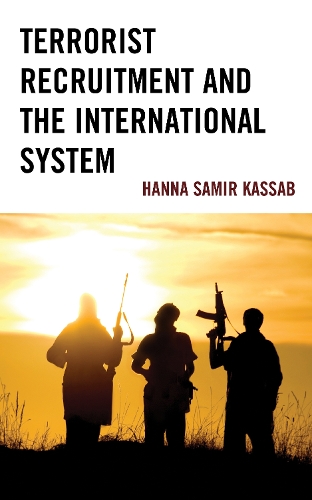
Terrorist Recruitment and the International System
(Hardback)
Publishing Details
Terrorist Recruitment and the International System
By (Author) Hanna Samir Kassab
Bloomsbury Publishing PLC
Lexington Books
13th November 2019
United States
Classifications
Professional and Scholarly
Non Fiction
International relations
Warfare and defence
Politics and government
303.625
Physical Properties
Hardback
174
Width 159mm, Height 232mm, Spine 20mm
440g
Description
Recruitment is key to a terrorist groups survival strategy. Steady enrollment is needed, not just to fight against perceived injustice, but to ultimately keep the grand strategy going. Terrorist groups depend on a continuous flow of recruits, with which they cannot survive otherwise. Moreover, weak states produce power vacuums that allow the spread of terrorist networks. This book establishes a link between weak states and terrorist actors. When a weak state fails to protect its territory and implement the rule of law because of corruption or incapacity, it results in the creation of power vacuums. Terrorist networks thrive within power vacuums and opportunistically fill the space where a weak state could not maintain control. Imitating or learning from terrorists, other political non-state actors will take the initiative to compete with the state for its monopoly on the use of violence, legitimacy, corruption and ideology. Understanding these mechanisms is key to developing strategies to combat recruitment.
Reviews
Kassab (East Carolina Univ.) analyzes the complex yet significant relationship between terrorist recruitment and weak states, emphasizing that power vacuums benefit terrorist recruitment in important (and complicated) ways. The overall result, Kassab argues, is the destabilization of the international system. The book is largely theoretical and based on secondary sources (magazine and newspaper articles and scholarly books and journal articles), government documents, and nongovernmental organization reports. The author organizes the book's six main chapters in two sections--"Levels of Analysis" and "Recommendations"-- each comprising three chapters. In the first section Kassab examines terrorism at three distinct levels: the individual, the nation-state, and the international system. In the second section he makes recommendations for minimizing terrorist recruitment, leveraging a detailed analysis of the 2003 invasion of Iraq and its serious ramifications, especially the advent of the Islamic State. The author uses this instructive case study to consider short- and long-term solutions. This book is valuable for examining such vital concepts as resilience, the corrosive effects of corruption and underdevelopment on weak states, and the potential of inclusive political institutions to bolster a state's legitimacy and thereby inhibit terrorist recruitment. Summing Up: Highly recommended. Lower-division undergraduates through faculty.
-- "Choice Reviews"Author Bio
Hanna Samir Kassab is teaching assistant professor at East Carolina University.
